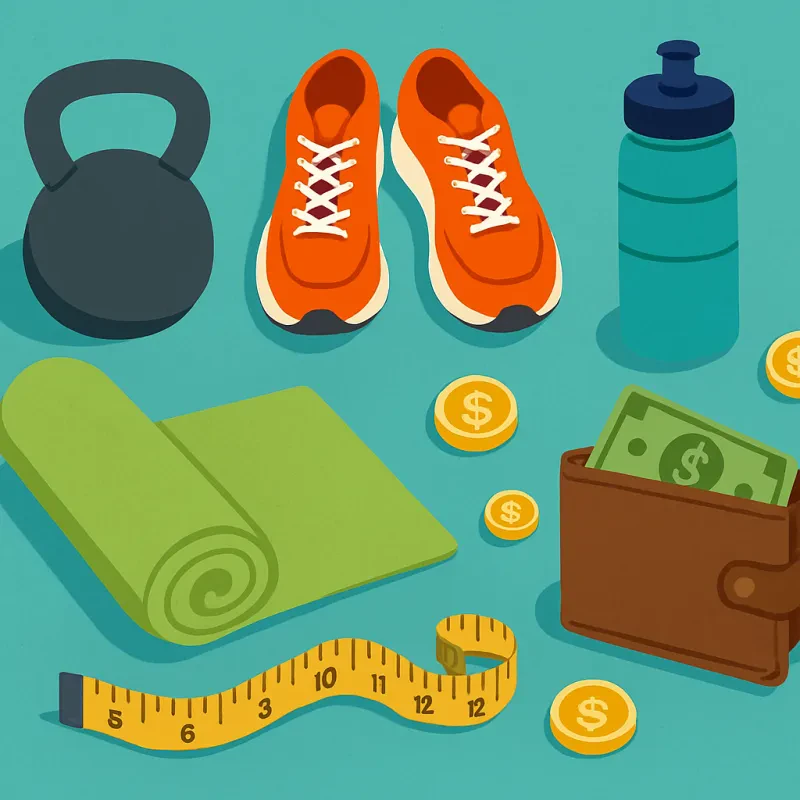Why Regular Physical Activity is Essential for Individuals of All Ages
In today's fast-paced world, it is easy to fall into a sedentary lifestyle. However, regular physical activity is crucial for individuals of all ages. Whether you're a child, an adult, or a senior, incorporating exercise into your daily routine can bring about numerous benefits for your physical and mental well-being.
Physical Health Benefits
Engaging in regular physical activity helps maintain a healthy weight. It burns calories, increases metabolism, and builds muscle tone, preventing obesity and related health issues such as heart disease, type 2 diabetes, and certain cancers. Furthermore, it strengthens the bones, reducing the risk of osteoporosis in later years.
Exercise also enhances cardiovascular health. It improves blood circulation, lowers blood pressure, and reduces the risk of heart disease and stroke. Regular physical activity has also been linked to a decreased risk of developing chronic conditions like arthritis, respiratory problems, and metabolic disorders.
Mental Well-being
Physical activity has been proven to have significant positive effects on mental health. Regular exercise can improve mood, reduce symptoms of anxiety and depression, and enhance overall psychological well-being. Engaging in physical activity stimulates the release of endorphins, which are neurotransmitters that promote feelings of happiness and reduce stress levels.
Moreover, exercise can improve cognitive function and boost memory and concentration. It increases blood flow to the brain, delivering oxygen and nutrients that help in the growth and development of brain cells. Regular physical activity has also been shown to improve sleep patterns, resulting in better rest and increased energy levels throughout the day.
Social Benefits
Physical activity is not only beneficial for individuals but also provides opportunities for social interaction and connection. Participating in group sports, fitness classes, or outdoor activities allows individuals to meet new people, make friends, and strengthen existing relationships. Exercising together can provide a sense of camaraderie, motivation, and support, making it more enjoyable and easier to stick to a regular physical activity routine.
In conclusion, regular physical activity is essential for individuals of all ages. It promotes physical health, mental well-being, and even social connections. Incorporating exercise into our daily lives can provide us with a plethora of benefits, improving our overall quality of life at any stage.
Physical, Mental, and Emotional Benefits of Exercise for Every Age Group
Regular physical activity is crucial for people of all ages, as it brings numerous benefits to our physical, mental, and emotional well-being. Whether you are a child, a young adult, or an older adult, incorporating exercise into your daily routine can significantly improve your overall health and quality of life. Let's explore the various benefits exercise offers for each age group:
Children and Adolescents
For children and adolescents, physical activity is essential for healthy growth and development. Engaging in regular exercise helps build strong muscles and bones, promotes proper weight management, and reduces the risk of diseases such as obesity, heart conditions, and diabetes.
Not only does exercise contribute to physical health, but it also has a positive impact on cognitive function and academic performance. Studies have shown that physically active children demonstrate improved concentration, memory, and problem-solving abilities. Additionally, engaging in regular physical activity can enhance their self-esteem, promote teamwork skills, and boost social interactions.
Young Adults and Middle-aged Adults
As young adults and middle-aged adults face the demands of work, family, and various responsibilities, exercise becomes an important tool for managing stress and maintaining good health. Regular physical activity helps reduce the risk of chronic diseases like cardiovascular conditions, type 2 diabetes, and certain types of cancer.
Furthermore, exercise plays a crucial role in maintaining a healthy weight, improving muscular strength and endurance, and enhancing overall physical fitness. It also aids in better sleep quality, which is crucial for overall well-being and mental health. Exercise acts as a powerful mood lifter, releasing endorphins and promoting a sense of happiness and well-being.
Older Adults
As we age, exercise becomes even more vital in maintaining good health and independent living. Engaging in regular physical activity helps prevent age-related loss of muscle mass, bone density, and strength, reducing the risk of falls and fractures. It also helps manage chronic conditions such as arthritis, osteoporosis, and cardiovascular disease.
Exercise not only benefits older adults physically but also mentally and emotionally. Regular physical activity has been shown to improve cognitive function, memory, and overall mental well-being. It enhances mood, reduces symptoms of anxiety and depression, and promotes social interaction and a sense of community through group activities.
In conclusion, no matter your age, integrating regular exercise into your daily routine brings a range of physical, mental, and emotional benefits. From children and adolescents to young adults, middle-aged adults, and older adults, physical activity plays a crucial role in maintaining good health, reducing the risk of disease, managing stress, and enhancing overall well-being.
Tips and Strategies to Incorporate Regular Physical Activity into Daily Routines at Any Age
In today's fast-paced world, it is becoming increasingly important for individuals of all ages to incorporate regular physical activity into their daily routines. Not only does regular exercise help maintain a healthy weight and improve overall physical fitness, but it also has numerous benefits for mental health and well-being. Here are some tips and strategies to help you make physical activity a part of your daily routine, regardless of your age:
1. Start Small and Gradually Increase
If you're new to exercise or haven't been physically active in a while, it's crucial to start small and gradually increase your activity level over time. Begin with activities that you enjoy and feel comfortable doing. Whether it's taking a short walk around the neighborhood or dancing to your favorite music, every little bit of movement counts. As you build strength and endurance, challenge yourself with longer walks or try more vigorous activities like cycling or swimming.
2. Find an Activity You Love
One of the key factors to sticking with a regular exercise routine is finding an activity that you genuinely enjoy. Whether it's dancing, hiking, playing a sport, or practicing yoga, pursuing an activity that brings you joy will make it easier to stay motivated. Experiment with different activities until you find something that suits your interests and matches your fitness level.
3. Set Realistic Goals
Setting achievable goals is essential to staying on track. Start by setting realistic targets for yourself, such as exercising for 30 minutes three times a week. As you meet these goals, you can gradually increase the duration and frequency of your workouts. Remember that any amount of physical activity is better than none, so don't be too hard on yourself if you miss a session or fall short of your goals.
4. Make it a Social Activity
Exercising with others can be a great way to stay motivated and make physical activity more enjoyable. Invite a friend or family member to join you for a walk or join a fitness class that interests you. Not only will you benefit from the physical activity, but you'll also have an opportunity to socialize and spend quality time with your loved ones.
5. Incorporate Exercise into Daily Tasks
With our busy schedules, finding time for exercise can be challenging. However, there are many opportunities to incorporate physical activity into your daily routine. Instead of taking the elevator, opt for the stairs; park your car farther away from your destination to get in some extra steps; or take short active breaks during your workday to stretch or walk around. By making small adjustments to your daily tasks, you can accumulate significant amounts of physical activity throughout the day.
6. Keep it Varied and Fun
To prevent boredom and maintain motivation, it's important to keep your exercise routine varied and enjoyable. Mix up your activities to target different muscle groups and prevent overuse injuries. Try new fitness classes, explore different hiking trails, or use online workout resources for fresh ideas. By keeping your routine fun and exciting, you'll be more likely to stick with it over the long term.
7. Listen to Your Body
As you engage in physical activity, it's essential to listen to your body and make necessary adjustments. If you experience pain or discomfort, take a break or modify the activity to avoid injury. Gradually increase the intensity and duration of your workouts, but avoid overexertion. Remember, the goal is to make exercise a sustainable part of your daily routine, so listen to your body's cues and adjust accordingly.
Regardless of age, incorporating regular physical activity into daily routines has numerous benefits for both our physical and mental well-being. By starting small, finding activities you enjoy, and setting realistic goals, you can make exercise a sustainable and enjoyable part of your life. So get moving, be consistent, and unlock the countless benefits of regular physical activity!


